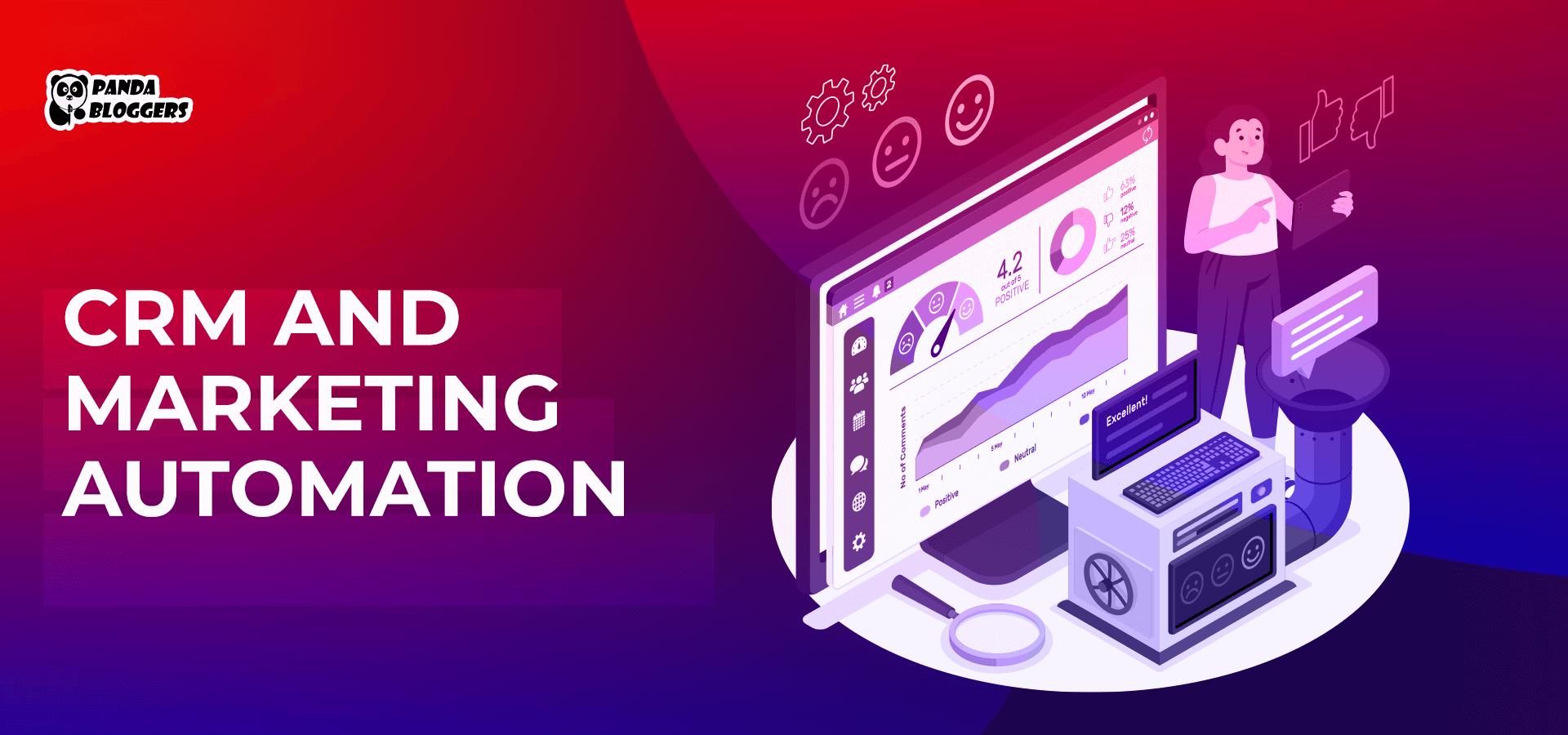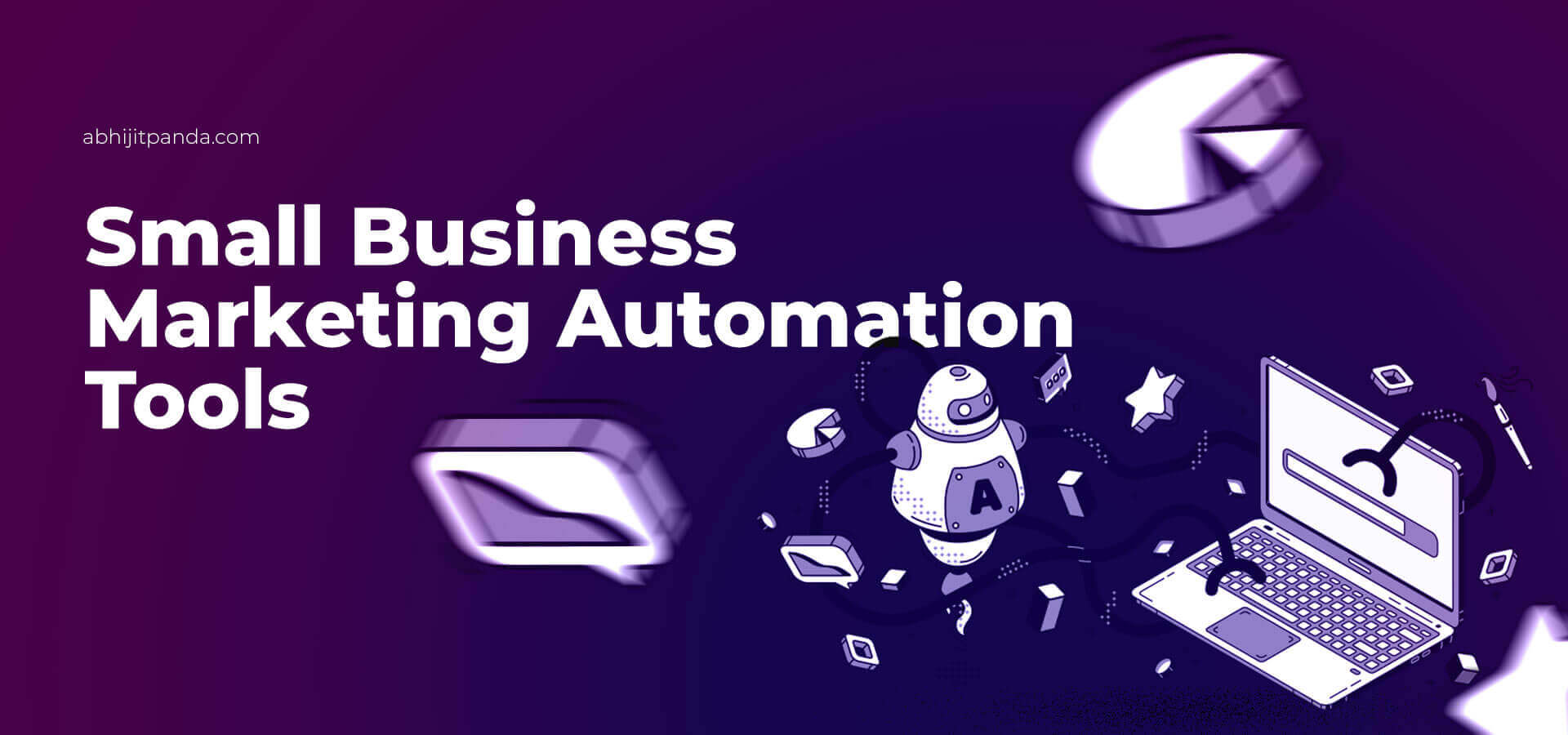 CRM and Marketing Automation
CRM and Marketing Automation
In the age of Industry 4.0, companies and startups streamline marketing and sales processes using a variety of tech tools and solutions. They implement various marketing automation tools to organize and unify multifunctional marketing campaigns by automating routine marketing tasks and activities.
At the same time, they boost the sales process by implementing customer relationship management (CRM) software. The enterprise software caters to the needs of salespeople by aggregating, organizing, updating, and analyzing customer information collected from various channels.
Many enterprises unify and streamline sales and marketing processes by integrating CRM and marketing automation. We can understand key aspects of CRM and marketing automation by answering three basic questions:
- What is CRM Software?
- What is marketing automation?
- Why do enterprises integrate CRM and marketing automation?
What is CRM Software?
CRM software helps companies build a centralized lead hub by accumulating and storing important customer information like addresses, email IDs, phone numbers, social media profiles, purchase history, and preferred communication channels. Additionally, the enterprise system records the interaction between prospects and brands across communication and marketing channels.
Leading CRM systems feature intuitive dashboards. The dashboards make it easier for users to access relevant customer information by filtering both data and tasks. Marketers, salespeople, and customer support executives can personalize customer interactions by accessing the same cloud-based CRM software on desktops, laptops, smartphones, and tablets.
In addition to storing and updating customer data automatically, CRM software analyzes customer data and shares real-time insights using data analytics and artificial intelligence (AI) technologies. Hence, marketers and salespeople need not collect, update and analyze customer data manually. An enterprise can automate customer data collection, organization, and analysis by implementing a new-age CRM platform.
What is Marketing Automation?
As a tried-and-tested business strategy, marketing automation helps enterprises boost employee productivity and operational efficiency through the automation of routine and repetitive tasks. An enterprise can implement specialized marketing automation tools to automate specific marketing processes like email marketing and content creation.
At the same time, it eliminates the need to implement and integrate multiple tech tools by opting for an all-in-one marketing automation platform. In addition to curtailing human resource costs, marketing automation helps enterprises generate better leads, boost lead nurturing, and personalize customer journeys.
New-age marketing platforms help marketers predict consumer behavior, understand customer preferences, and measure campaign performance using intelligence technologies. Additionally, they come with essential marketing tools like lead scoring and A/B testing. Hence, it becomes easier for marketers to identify high-quality leads and nurture them by sending high-quality content.
Why Enterprises Integrate CRM and Marketing Automation?
CRM software boosts the entire sales process by helping sales representatives make informed decisions. On the other hand, marketing automation helps marketers run multichannel marketing campaigns without putting in extra time and effort. Hence, CRM and marketing automation differ from each other in several categories, including goal, purpose, and end-users.
However, application programming interface (API) integration bridges that gap between cloud-based CRM software and marketing automation tools by synchronizing them seamlessly. The synchronization helps enterprises unify and boost marketing and sales processes. Also, each organization can leverage a slew of benefits by integrating CRM and marketing automation.
Unify Sales and Marketing Activities
The unification of sales and marketing teams is essential for the success of B2B marketing strategies like account-based marketing. An enterprise can unify sales and marketing teams by integrating CRM software with marketing automation. The integration will enable both marketers and salespeople to access customer details and interactions.
Also, both teams can define and qualify leads accurately based on touchpoints. The unified data will further help them understand the needs, preferences, and behavior of customers accurately. Hence, marketers can nurture the lead by sending the right message, while salespeople can contact the lead at the right time.
Ensure Bidirectional Customer Data Flow
Integration APIs ensure seamless customer data exchange between the CRM and marketing automation by acting as messengers. The CRM software will collect and update customer data automatically. Also, it will capture customer interactions regularly. At the same time, marketing automation tools can leverage customer data and interactions without human intervention.
Marketing automation tools will further keep the data up-to-date by sharing the latest marketing actions taken by prospects. The CRM software sends automated notification that helps marketing and sales teams monitor the latest customer action. The two-way data transmission eliminates the need to track customer communications manually across channels and touchpoints.
Personalize Customer Communication
Marketing automation tools help enterprises deliver content and messages to customers without deploying additional staff. However, the tools cannot boost multichannel marketing campaigns without personalizing marketing content and messaging. CRM software enables marketing automation tools to personalize customer communications by sharing both data and insights.
After integration, the CRM software will make the automation software access up-to-date data stored in a centralized location. Hence, the marketing automation tool can identify important customer data points like buying behavior, interests, preferences, and past purchases. These essential customer data points make it easier for marketing automation tools to deliver personalized messages and content to each prospect.
Boost Customer Experience and Satisfaction
The CRM software helps the customer support team boost customer experience and satisfaction by resolving issues and providing assistance quickly. At the same time, marketers and salespeople can use integrated software to track customer interactions. The marketing team can decide the best way to interact with the customers by visualizing their buying journey clearly.
At the same time, sales teams can monitor interactions to decide when to contact a warm lead and convert him into a customer. Both marketing and sales teams have access to the data required to understand the behavior and needs of a prospect. Hence, they shorten the lead conversion process by customizing content and messaging.
Find Up-Selling and Cross-Selling Opportunities
In addition to driving customer acquisition, CRM and marketing automation integration helps enterprises boost revenue through up-selling and cross-selling. The integrated enterprise system makes it easier for marketers and salespeople to understand a customer’s past purchases and emerging needs.
Additionally, the personalized customer experience makes it easier for them to persuade the customer to upgrade a product or purchase add-ons. Likewise, they can recommend relevant products or services to a customer according to his purchase history. Both teams can leverage up-selling and cross-selling opportunities by sending the right message to a customer at the right time.
Identify and Resolve Issues Proactively
Marketing strategies often do not accomplish preset goals. Likewise, salespeople fail to close deals by pursuing irrelevant leads. The integration of CRM and marketing helps decision-makers identify the issues impacting marketing campaigns or sales initiatives based on real-time data. The data-driven insights shared by the marketing automation tools help them understand why specific marketing campaigns fail.
Likewise, the real-time insights shared by the CRM help salespeople assess lead quality regularly. The integration enables enterprises to detect and fix various issues affecting marketing campaigns and sales initiatives. Also, decision-makers can increase sales conversion rates by fixing various issues by taking corrective actions proactively.
Conclusion
Marketing automation helps companies generate and nurture leads, while CRM helps sales teams convert more deals. Leading marketing automation platforms these days come with built-in CRM tools. Likewise, modern CRM systems automate routine marketing, sales, and customer support functions.
In addition to unifying sales and marketing processes, CRM and marketing automation integration enables enterprises to boost lead generation, nurturing, and conversion activities while promoting customer loyalty. Also, an enterprise can leverage Industry 4.0 technologies like data analytics, artificial intelligence, and machine learning by integrating new-age CRM and marketing automation software.








Leave a Reply